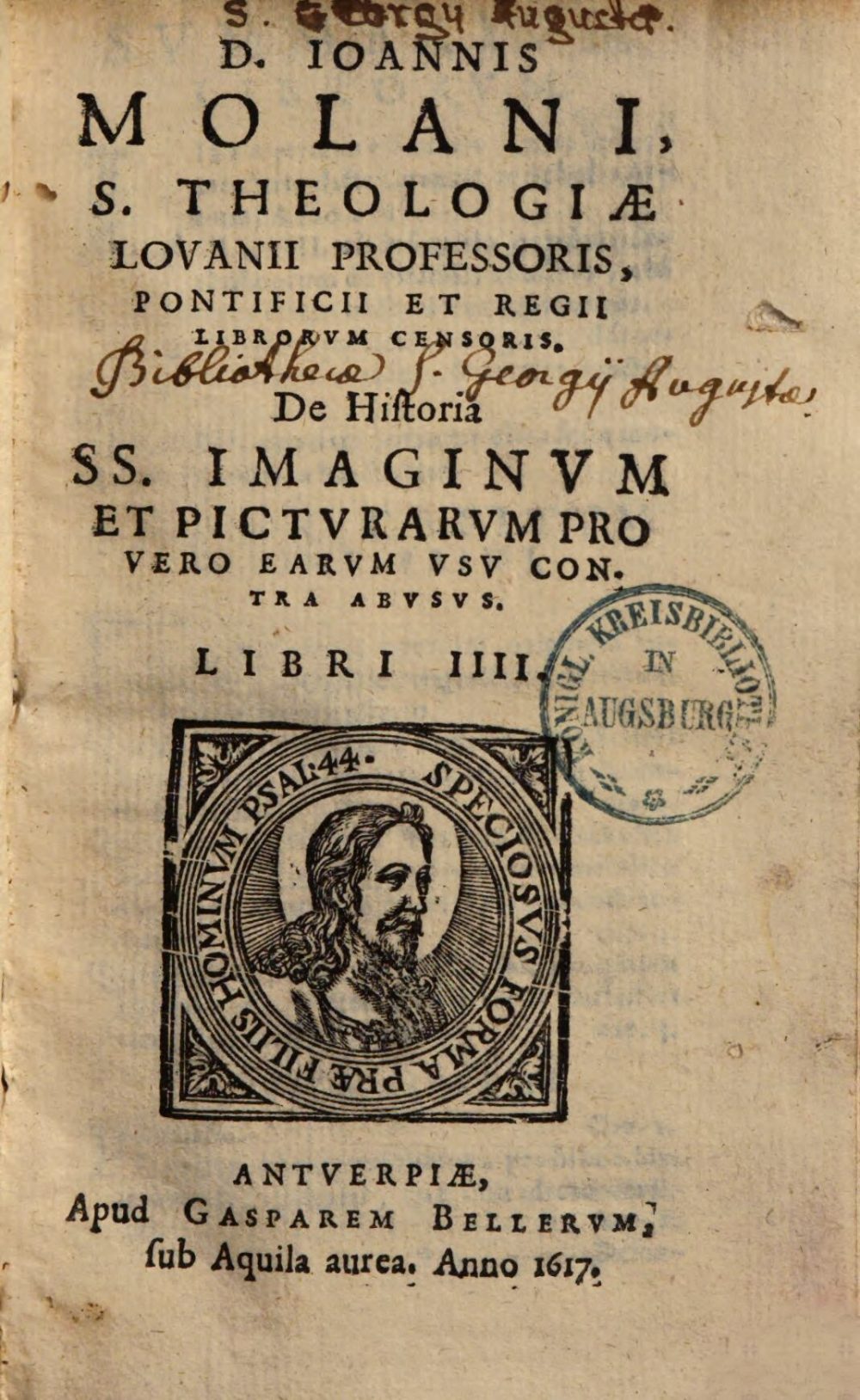
Augsburg, Staats- und Stadtbibliothek — Th H 1475. Digital Reproduction: München, Bayerische Staatsbibliothek, 2015.
Molanus condemns images cults dedicated to worldly rulers.
“Some who are too weak in their own passions have committed a very serious abuse by using paintings of this kind. For it has been a source of delusion for the life of man: a father consumed by premature death had an image made of his child so early ravished, and he who yesterday was but a dead man, now honours him as a god and establishes a cult and sacrifices to him among his servants; then in time this criminal custom is strengthened and observed as a law, and it is at the command of tyrants that a cult is rendered to the sculptured images. Men who could not honour the latter in person, because they lived at a distance, brought a representation from a great distance. They made a visible image of the king whom they wished to honour, in order, in their zeal, to worship the absent one as if he were present. The admirable talent of the artists extended his worship to those who did not know him. The artist, desirous of pleasing the one who employed him, put all his art into forming a representation of the best. And the crowd of men, attracted by the beauty of the work, considered as a god the one they had previously honoured as a man. And it has been a source of illusion to the life of a man that men, enslaved to their passions or to kings, have given to wood and stone the incommunicable Name. But it was not enough for them to err in the knowledge of God; while their ignorance made them live in the deep disorder of war, they gave to such deep evils the name of Peace.”
“Quidam autem nimium affectivus suis indulgentes, huiusmodi picturis gravissime abusi sunt. Nam haec fuit vitae humane deceptio. Acerbo enim luctu dolens pater cito, sibi rapti filii fecit Imaginem et illum qui tunc quasi homo mortuus fuerat, nunc tanquam Deum colere coepit et consituit inter servos suos sacra et sacrificia. Deinde interveniente tempore, convalescente iniqua consuetudine, hic error tanquam lex custoditus est et tyrannorum imperio colebantur sigmenta. Et hos quos in palam homines honorare non poterant, propter hoc quod longe essent, è loginquo figura eorum alata evidentem Imaginem regis quem honorare volebant fecerunt, ut illum qui aberat tanquam praesentem colerent sua solicitudine. Provexit autem ad horum culturam et hos, qui ignorabant, artificis eximia diligentia. Ille enim volens placere illu qui se assumsit, elaboravit arte sua, ut similitudinem in melius figuraret. Multitudo autem hominum abducta per speciem operis, eum qui ante tempus tanquam homo honoratus fuerat, nunc Deum aestimaverunt. Et haec fuit vitae humanae deceptio, quoniam, aut affectui, aut Regibus deservientes homines, incommunicabile nomen lapidibus et lignis imposuerunt. Et non suffecerat errasse eos circa Dei scientiam, sed in magno viventes inscientiae bello, tot et tam magna mala pacem appellant.”
Molanus 1996, 311.



